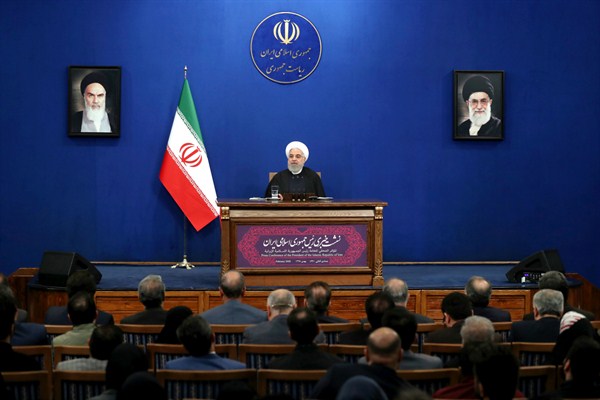Since President Donald Trump withdrew the United States from the international deal designed to prevent Iran from getting a nuclear bomb, the time it might take Tehran to build such a weapon if it so chooses has dropped from more than a year to just a few months. The world now has much less time to react if that happens—and no good options in response.
After Washington, to the dismay of its allies, reimposed economic sanctions and demanded that Iran do more to change its behavior, there have been no new negotiations and no clarity on exactly what the Trump administration wants from Iran. If anything, the “maximum pressure” campaign seems only to have strengthened the hard-liners in Tehran.
For a year after Trump withdrew from the nuclear agreement, the European Union tried to preserve the Joint Comprehensive Plan of Action, or JCPOA as the deal is known, while Iran continued to comply as it waited to see if the EU could find a way to mitigate the impact of the new U.S. sanctions. When it became clear that Washington’s threat to punish any company doing business with Tehran was more compelling than the EU’s desire to maintain relations, Iran’s oil exports and other trade dropped precipitously and its compliance with the JCPOA weakened.

